DEPARTMENT OF CELL PHYSIOLOGY
All of the cell functions are performed or supported by operation of channels (ion and water channels) and transporters (carriers and pumps) located on the membrane. The objectives of our division work are to elucidate molecular mechanisms of most general cell activities, such as volume regulation, absorption/secretion and environmental signal reception, to clarify roles of channels, transporters and receptors in these fundamental functions from the viewpoint of integrative biology, and to throw the light on the relationship between these malfunctions and diseases or cell death, as well as to study the multifunctionality of channel and transporter during cell functions or malfunctions.
The main subjects of our current research are as follows:
(1) "Molecular mechanisms of cell volume regulation and their physiological roles": Most cells regulate their cell volume even under anisotonic conditions. In the volume regulation mechanisms, a number of channels, transporters and receptors are involved (Fig. 1).
We are investigating to identify volume-regulatory membrane machineries, including the volume-sensitive anion channel, and to clarify their physiological roles.
(2) "Induction mechanisms of apoptotic, necrotic and ischemic cell death": Dysfunction of cell volume regulation is associated with necrotic and apoptotic cell death (Fig. 2) which is coupled to persistent swelling (necrotic volume increase: NVI) and shrinkage (apoptotic volume decrease: AVD). Our aim is to pioneer the new field of 'PHYSIOLOGY OF CELL DEATH' Ethrough elucidation of the mechanisms of cell volume regulation and their dysfunction. We are attempting to focus our studies on the mechanisms of ischemic cell death of brain neurons and cardiac myocytes.
(3) "Molecular mechanisms of biosensor channel functions": Channels are multifunctional proteins involved not only in electric signal generation and ion transport but also in sensing the environmental factors or stress. We aim at elucidating molecular mechanisms of volume- and stress-sensing functions of anion and ATP channels (Fig. 3).
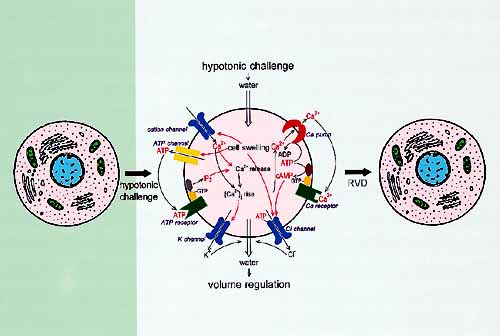
Fig. 1 Molecular mechanisms of the regulatory volume decrease (RVD) and of volume-sensor Cl channel (VSOR) activation. [after Okada et al. 2001, J. Physiol. 532, 3-16]
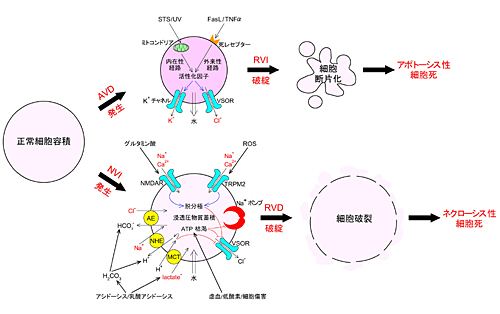
Fig. 2 Roles of channels and transporters in the induction of apoptotic volume decrease (AVD) and apoptotic cell death as well as in that of necrotic volume increase (NVI) and necrotic cell death. [after Okada et al. 2004, Pflügers Arch. 448, 287-295]
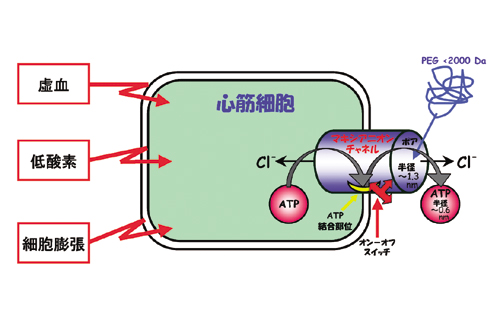
Fig. 3 Stress-sensing, ATP-releasing maxi-anion channel in cardiomyocytes.
[after Sabirov & Okada 2005, Purinergic Signalling. 1, 311-328]
Staff
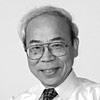 |
Professor:
OKADA, Yasunobu, MD, PhD
1970 Graduated from Kyoto University, Faculty of Medicine. 1974 Instructor and 1981 Assistant Professor, Kyoto University, Faculty of Medicine. 1992 Professor, NIPS.
Speciality: Molecular and Cellular Physiology |
 |
Assistant Professor:
KASHIHARA, Yasuhiro, PhD
1976 Graduated from Toyama University, Faculty of Science. 1983 Completed the doctoral course in Science, Kyushu University. 1983 Research Associate, NIPS.
Speciality: Neurobiology |
 |
Assistant Professor:
SHIMIZU, Takahiro, PhD
1995 Graduated from Toyama Medical and Pharmaceutical University, Faculty of Pharmaceutical Sciences. 2000 Completed the doctoral course in Life Science, the Graduate University for Advanced Studies. 2000 Research Fellow, NIPS. Apr 2002 JSPS Postdoctoral Fellow. Jul 2002 Research Associate, NIPS.
Speciality: Cell Physiology |
 |
Assistant Professor:
TAKAHASHI, Nobuyuki, PhD
1993 Graduated from Kyoto University, Faculty of Agriculture. 1999 Completed the doctoral course in Medicine, Kyoto University. Apr 1999 AIST Research Fellow. Oct 1999 BRAIN Research Fellow. Dec 2002 Research Associate, NIPS.
Speciality: Cell Biology |
 |
Research Associate:
NUMATA, Tomohiro, PhD
2001 Graduated from Tokyo Gakugei University, Faculty of Education. 2003 Completed the master course in Education, Tokyo Gakugei University. 2005 Completed the doctoral course in Life Science, the Graduate University for Advanced Studies. Apr 2006 JSPS Postdoctoral Fellow. Apr 2007 Research Fellow, NIPS.
Specialty: Cell Physiology |
 |
Postdoctoral Fellow:
URAMOTO, Hiromi
1990 Graduated from Japan women's University, Department of Food and Nutrition. 2002 Left the doctoral course in Life Science, the Graduate University for Advanced Studies. Nov 2002 JST Research Fellow. Apr 2004 MEXT Postdoctoral Fellow.
Speciality: Cell Physiology |
 |
Postdoctoral Fellow:
LEE, Elbert, PhD
1997 Graduated from Northwestern University, College of Arts and Sciences. 2005 Completed the doctoral course in Life Science, the Graduate University for Advanced Studies.
Specialty: Cell Physiology |
 |
Postdoctoral Fellow:
LIU, Hongtao, PhD
1992 Graduated from China medical University, Faculty of medicine. 2005 Completed the doctoral course in Life Science, the Graduate University for Advanced Studies.
Specialty: Cell Physiology |
Department of Bio-Environmental Science,
OKAZAKI INSTITUTE FOR
INTEGRATIVE BIOSCIENCE
We mainly investigate molecular mechanisms of thermosensation, nociception and taste sensation by focusing on TRP ion channels. We also investigate signal transductions and channels involved in cell adhesion and cell movement in mammalian cells. Molecular cell biological, biochemical, developmental biological and electrophysiological techniques are utilized to achieve the above objectives. The followings are major projects in progress.
(1) Molecular mechanisms of thermosensation: Temperaturesensing ability is conferred by ion channels of the TRPV, TRPM and TRPA families.We try to clarify the molecular mechanisms of thermosensation and their physiological significance by focusing on those thermosensitive TRP channels. We are also doing behavioral analyses of mice lacking TRPV3, TRPV4 or TRPM2. Furthermore, we are trying to isolate a novel thermosensitive TRP channels.
(2) Molecular mechanisms of nociception: Capsaicin receptor TRPV1 and TRPA1 are ion channels activated by different noxious stimuli. We try to clarify the nociceptive mechanisms at peripheral nerve endings by focusing on TRP ion channels, especially TRPV1 and TRPA1. We are also doing behavioral analyses of TRPV1- or TRPA1-deficient mice.
(3) Signaling mechanisms involved in cell adhesion and cell motility: We try to understand underlying mechanisms for cell adhesion and cell motility by focusing on signal transduction cascades involving Rho family proteins and its related proteins using cell biological and biochemical techniques. We are also analyzing the function of newly identified Rho family-related protein, DIP/WISH in epithelium, blood cells and brain using mice lacking DIP/WISH.
Staff
 |
Professor (concurrent, NIPS):
TOMINAGA, Makoto, MD, PhD
1984 Graduated from Ehime University, Faculty of Medicine. 1992 Graduated from Kyoto University Graduate School of Medicine. 1993-1999 Assistant Professor, National Institute for Physiological Sciences. 1996-1999 Research Fellow, University of California at San Francisco. 1999-2000 Assistant Professor, University of Tsukuba. 2000-2004 Professor, Mie University School of Medicine. 2004 Professor, Okazaki Institute for Integrative Bioscience.
Specialty: Cellular and Molecular Physiology |
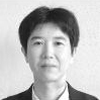 |
Associate Professor (NIPS):
FUKUMI, Tomoko, MD, PhD
1984 Graduated from Ehime University, Faculty of Medicine. 1984-1986 Resident, Internal Medicine, Mistui-Memorial Hospital, 1988-1993 Research Fellow, Kyoto University. 1993-1995 Research Fellow, National Institute for Basic Sciences and National Institute for Physiological Sciences. 1995 Assistant Professor, National Institute for Physiological Sciences. 1996-1999 Research Fellow, University of California at San Francisco. 1999-2000 Associate Professor, Dokkyo University School of Medicine. 2003-2004 Assistant Professor, Mie University School of Medicine. 2004 Associate Professor, Okazaki Institute for Integrative Bioscience.
Specialty: Cellular and Molecular Biology |
 |
Assistant Professor:
SHIBASAKI, Koji, PhD.
1996 Graduated from Utsunomiya University, Faculty of Agriculture. 2001 Graduated from The Graduated University for Advanced Studies, School of Life Science, 2001-2002 Research Associate, National Institute for Physiological Sciences. 2002-2004 Research Fellow, University of Rochester School of Medicine. 2004 Assistant Professor, Okazaki Institute for Integrative Bioscience.
Specialty: Cellular and Molecular Neurobiology |
 |
Assistant Professor (NIPS):
INADA, Hitoshi, PhD
1998 Graduated from Kyushu University Graduate School of Science.
1998-1999 Postdoctoral Fellow, Kyushu University. 1999-2005 Postdoctoral Fellow, Nagoya University. 2005 Research Fellow, National Institute for Physiological Sciences. 2006 Assistant Professor, National Institute for Physiological Sciences.
Specialty: Molecular Neurobiology, Behavioral Genetics |
 |
JSPS Postdoctoral Fellow:
SOKABE, Takaaki, PhD
1998 Graduated from Himeji Institute of Technology, Faculty of Science. 2004 Graduated from University of Tokyo Graduate School of Medicine. 2004-2005 Research Fellow, University of Tokyo Graduate School of Medicine. 2005 Postdoctoral Fellow, National Institute for Physiological Sciences. 2007 JSPS Postdoctoral Fellow.
Specialty: Cellular and Molecular Biology |
 |
Postdoctoral Fellow (NIPS):
KANEKO, Keiko, PhD
2001 Graduated from Nihon University, Faculty of Bioresource Science. 2007 Graduated from Yokohama City University Graduate School of Medicine. 2007 Postdoctoral Fellow, National Institute for Physiological Sciences.
Specialty: Biochemistry |
 |
Postdoctoral Fellow:
MATSUI, Makoto, PhD
2000 Graduated from University of Tokushima, Faculty of Engineering. 2003 Graduated from University of Tokushima Graduate School of Human and Natural Environment Science. 2006 Graduated from The Graduated University for Advanced Studies, School of Life Science. 2006-2006 Postdoctoral Fellow, Tsurumi University. 2007 Postdoctoral Fellow, Okazaki Institute for Integrative Bioscience.
Specialty: Cellular and Molecular Biology |
|